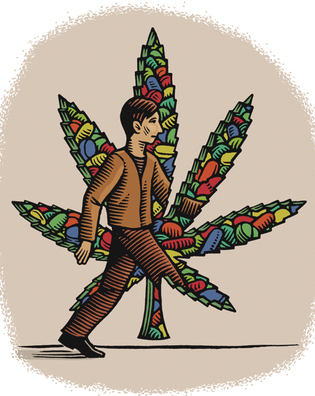 loading
loading
FindingsGateway to Percocet?Booze, pot, and tobacco are linked to prescription drug abuse.  Gregory NemecView full image
Prescription opioid pain medications like Vicodin and morphine are increasingly winding up in the hands of adolescents and young adults whose names are not on the prescription. Now, a Yale study has found that many abusers of these prescription drugs used tobacco, alcohol, or marijuana earlier in life. The authors say their finding—like earlier studies that found an association between marijuana use and later cocaine and heroin abuse—lends support to the so-called gateway drug hypothesis: that the use of “softer” substances today can lead to abuse of harder drugs down the road. A team led by Lynn Fiellin, a physician and drug addiction researcher at the School of Medicine, analyzed a sample of more than 55,000 18-to-25-year-olds who took part in the annual National Survey on Drug Use and Health (NSDUH) from 2006 to 2008. Twelve percent of the participants reported nonmedical abuse of prescription opioids. The researchers found that 57 percent of that group reported earlier use of alcohol, before taking opioids recreationally; 56 percent, earlier use of tobacco; and 34 percent, earlier use of marijuana. Among the men, using any of the three substances was associated with later abuse of prescription opioids. Among the women, only early marijuana use had a statistically significant link. Overall, those who had smoked as adolescents were about 2.5 times more likely than those who hadn’t to report abuse of opioids. (The study was published in September’s online edition of the Journal of Adolescent Health.)
The comment period has expired.
|
|